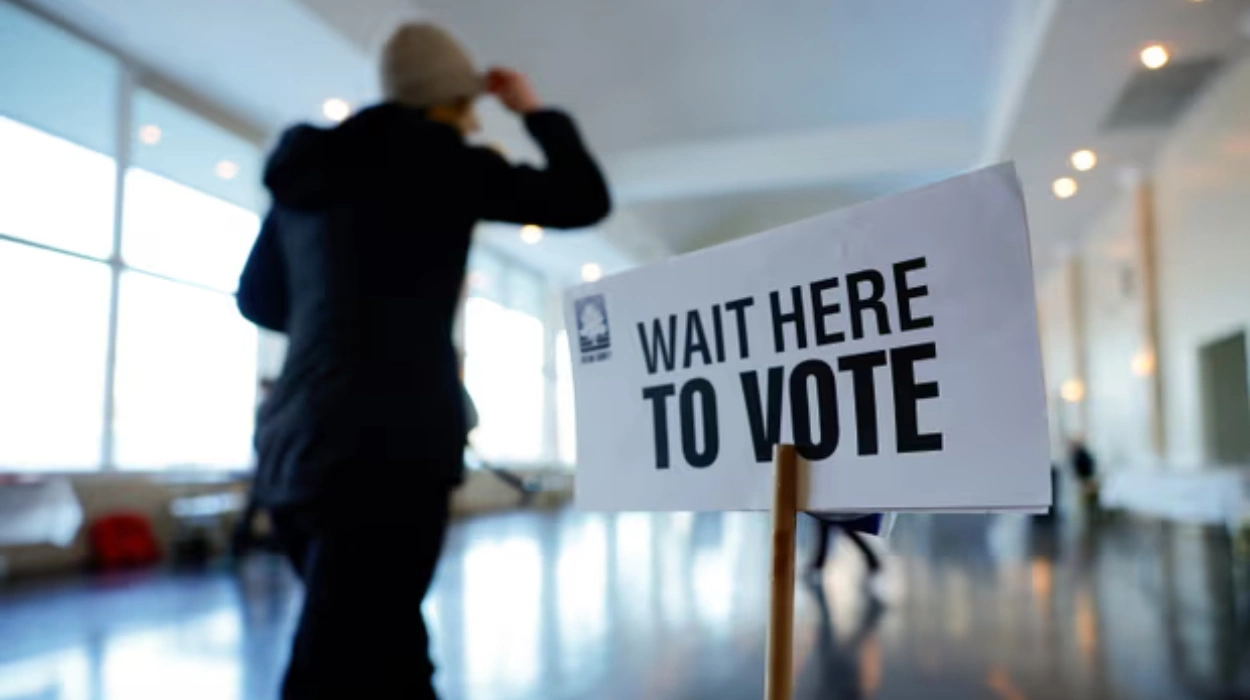Georgia (Washington Insider Magazine) —The Georgia State Election Board, led by Republicans, has introduced a new rule granting local officials more authority to investigate votes after Election Day. This move has raised alarms about potential disruptions to the upcoming fall elections. The newly approved regulation allows any member of a county election board to review all election-related documents before certifying results, sparking concerns among voting rights advocates and legal experts that this could delay the certification process and sow confusion.
Despite Georgia’s law mandating that election results be certified by 5 p.m. the Monday following Election Day, the changes are seen by many as giving election deniers an opportunity to prolong the certification process. Critics argue that the rule offers no safeguards against bad-faith requests, allowing individuals to request unnecessary documents without justification.
In a letter to the board, the American Civil Liberties Union, Citizens for Responsibility and Ethics in Washington (CREW), and the Public Rights Project expressed concern that this new rule would allow for obstructive tactics aimed at disrupting lawful certification. They warned that the rule could empower local officials to make unreasonable demands for documents, potentially delaying or even preventing certification of legitimate election results.
This latest rule follows a series of procedural changes spearheaded by Republican members of the board, many of whom have been publicly praised by former President Donald Trump. In a separate decision earlier this month, the board granted local election boards the authority to conduct “reasonable inquiries” into election results before certification, without clearly defining what constitutes such an inquiry.
Julie Adams, a Republican member of the Fulton County election board, has refused to certify elections in Georgia’s largest county, citing a lack of access to adequate election documents. Supported by the Trump-aligned America First Policy Institute, Adams is now suing her county’s election board and director for greater transparency. Her stance reflects a broader effort by a network of election deniers, some of whom played a role in shaping the rule adopted by the state board.
Voting rights groups and Democratic leaders have raised concerns about the intent behind these rule changes. Lauren Groh-Wargo, CEO of Fair Fight, accused Trump and his allies of using these changes to subvert Georgia’s election process to favor the former president, even if he does not win a majority of votes.
Another contentious aspect of the new rule requires county election boards to compare voter ID numbers with ballots in each precinct by 3 p.m. on the Friday after Election Day. If any discrepancies arise, the board has the authority to determine how to adjust the vote count. This has raised fears that minor, routine discrepancies could be used as a pretext to delay or alter election outcomes.
Critics within the board, including Republican chairman John Fervier, have voiced opposition to these new measures, arguing that they overstep the board’s authority and could create unnecessary delays. Election experts noted that small discrepancies, such as voters leaving with their ballots before casting them, are not uncommon but rarely affect election results.
The Georgia board is also considering additional proposals, including one to require hand-counting of ballots. Although this rule has yet to be finalized, Georgia’s Secretary of State, Brad Raffensperger, has criticized the proposed changes, warning that they could lead to significant delays and undermine public confidence in the election process.
As concerns grow about election integrity and the possibility of chaos in the 2024 elections, Georgia’s new rules have become a flashpoint in the ongoing debate over election security and the influence of political forces on democratic processes.


























